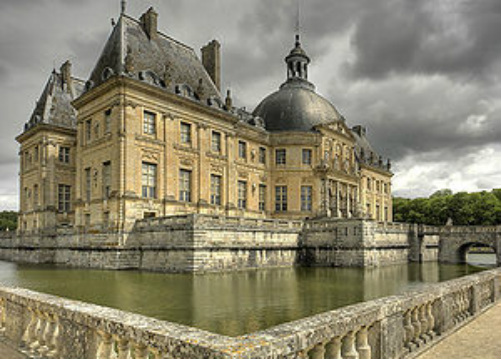Vaux le Vicomte: Icarus revisited
The marvellous castle of Vaux le Vicomte, situated some 50 km southeast of Paris, is through its origin one of the best illustrations of how the Greek myth of Icarus contains a fundamental truth. It was built during the years 1658 to 1661 for the ambitious French nobleman Nicolas Fouquet, who at that time had become the superintendent of finances for the famous French King Louis XIV. Fouquet, who had vast cultural interests, had engaged the architect Louis Le Vau, the landscape architect André Le Nôtre, and the painter Charles Le Brun to work together in building the castle, the gardens and the interiors as an artistic entity. These artists were the most famous of this time, and they produced a magnificent castle which fully matched the political and social ambitions of Nicolas Fouquet. He wished to impress and flatter the king. The magnificence of the castle was aimed at impressing him, and the fact that an important part of the interior of the castle was reserved for the king was inteded to flatter him. To top it all off, Nicolas Fouquet organized a grandiose festivity at the castle, with the presentation of a play by Molière (who was a friend of Fouquet) and impressive fireworks. While the king used to serve his dinners in silver platters, it is said that Fouquet served them in gold platters. Fouquet obviously overplayed his ambitious scheme. Louis XIV, himself also an immmensely vain man, was not the right person to allow himself to be impressed by the magnificence of his own subjects. After the celebration, which took place on the 17th of August 1661, Fouquet was arrested by the king, who suspected him of misappropriations of public funds. The king seized and confiscated a large part of the contents of the estate, and Fouquet was imprisoned for life. Fouquet's wife went in exile, but recovered the castle ten years later. The castle was sold several times after that, and the family of the present owner - Comte de Vogüé - acquired it in 1875. You can get further information on this here.
